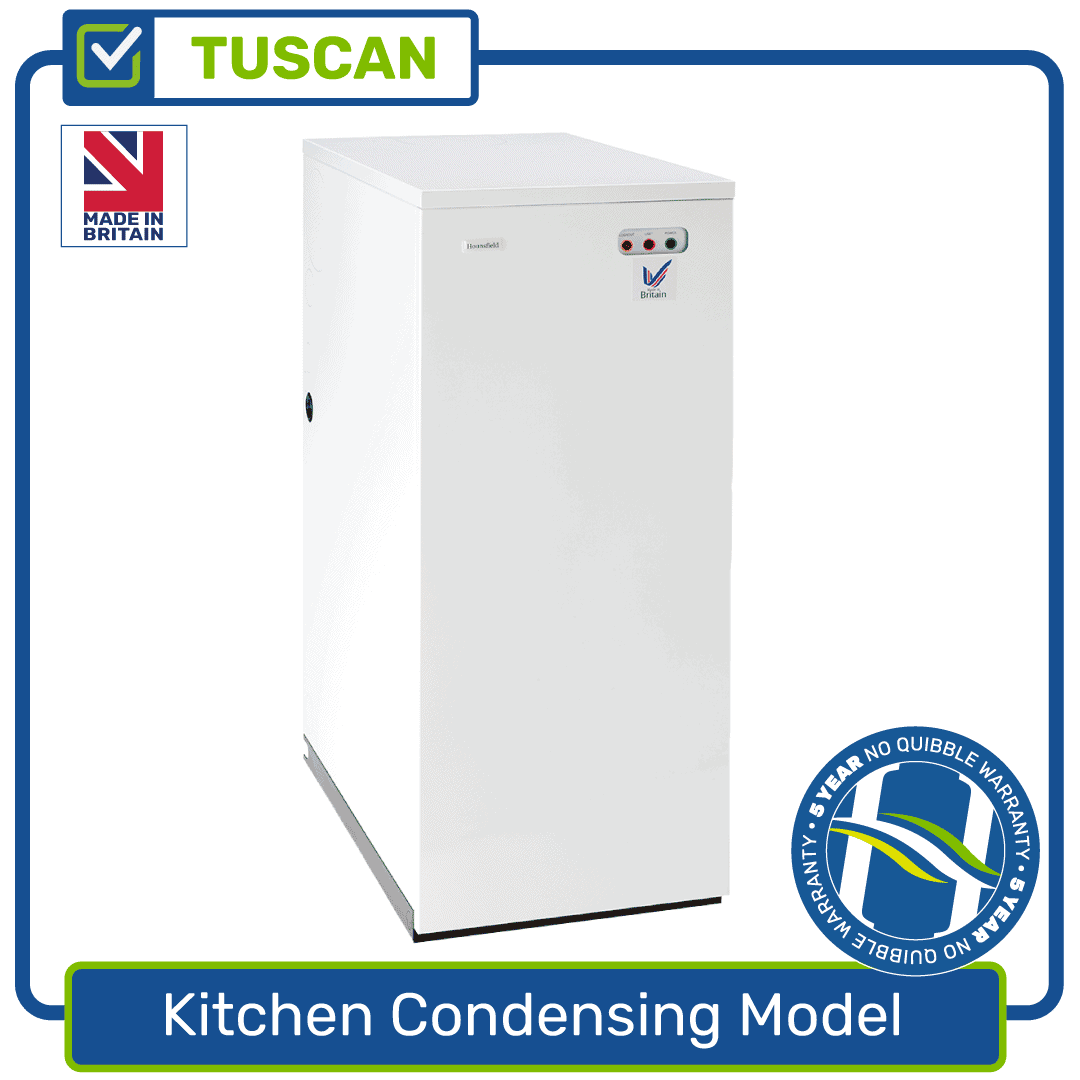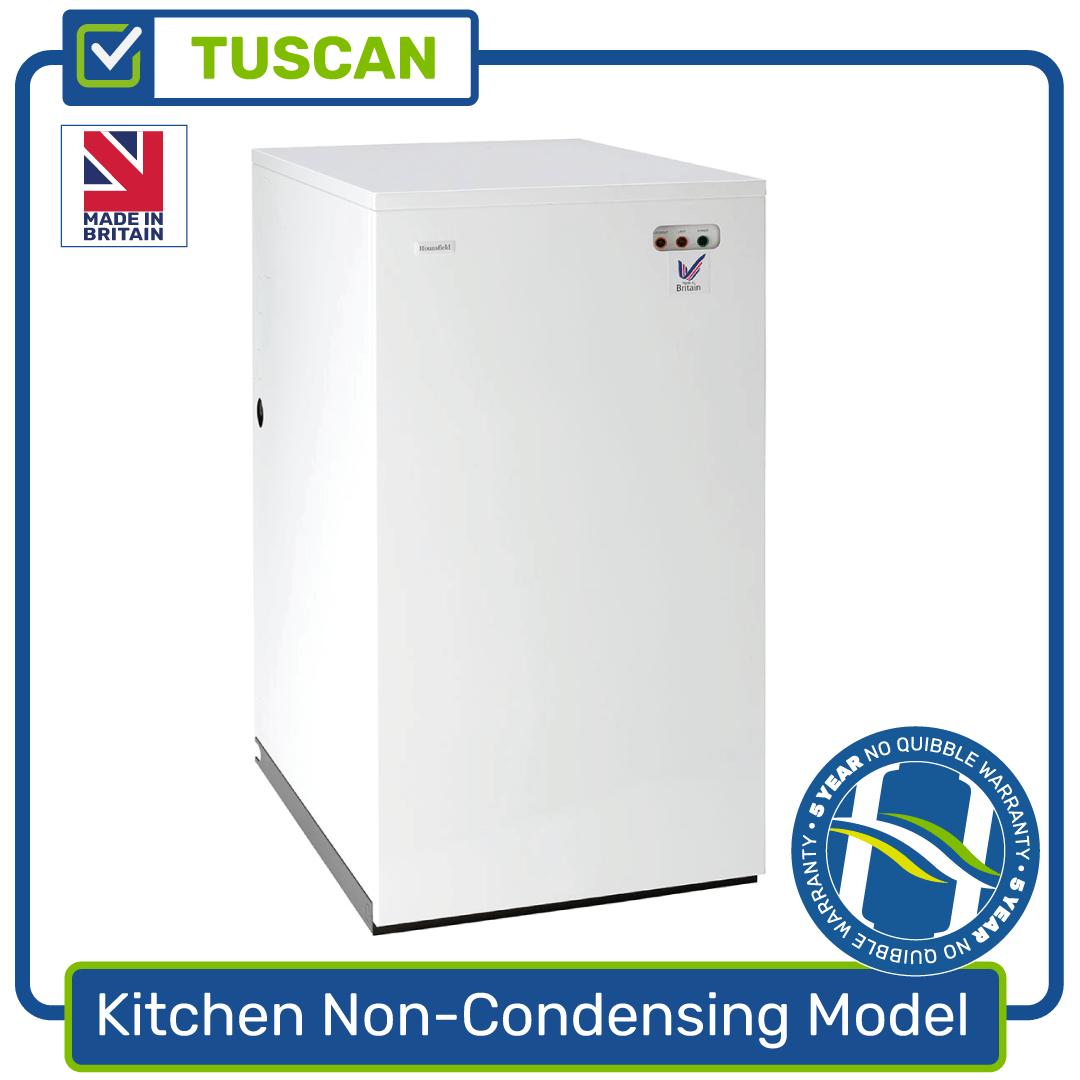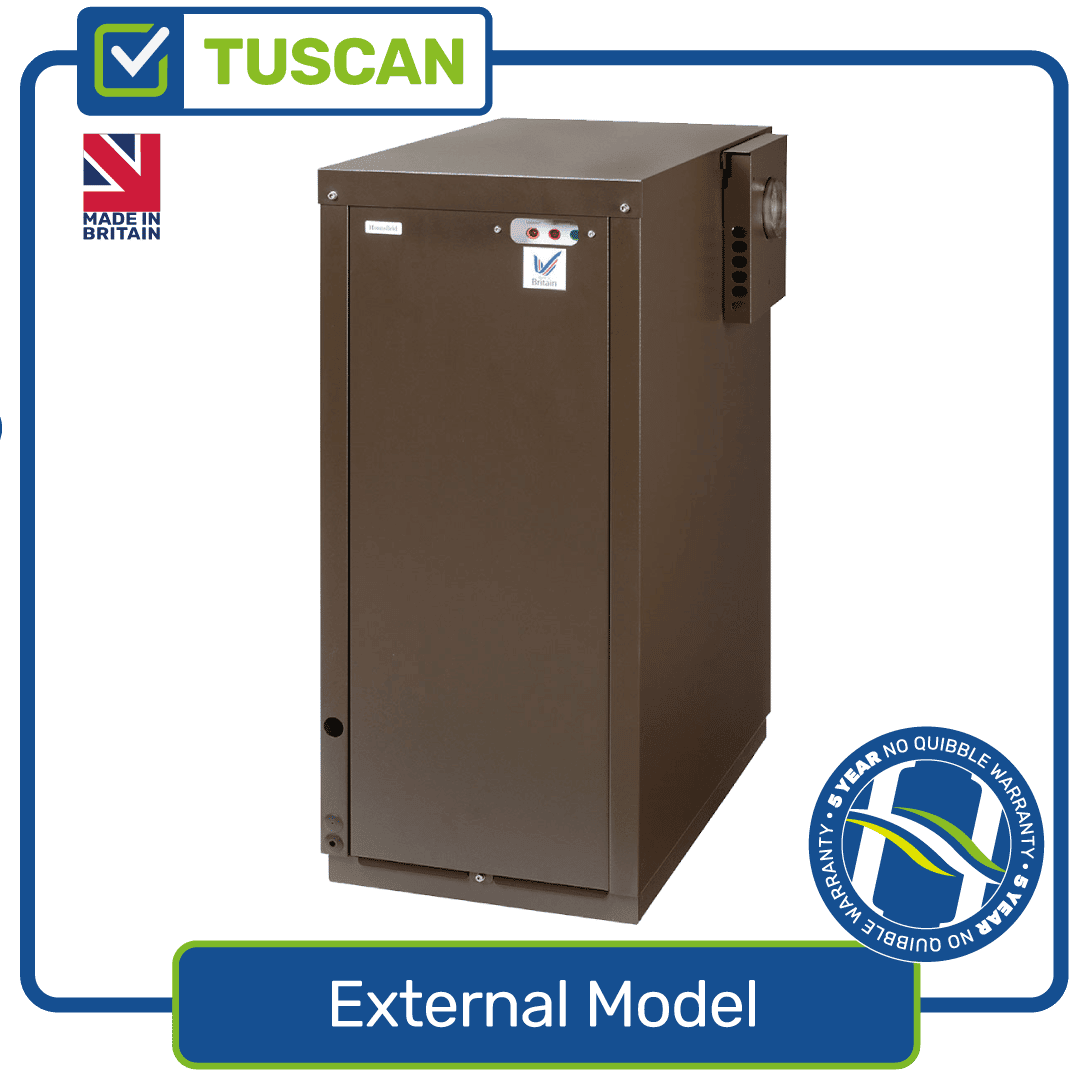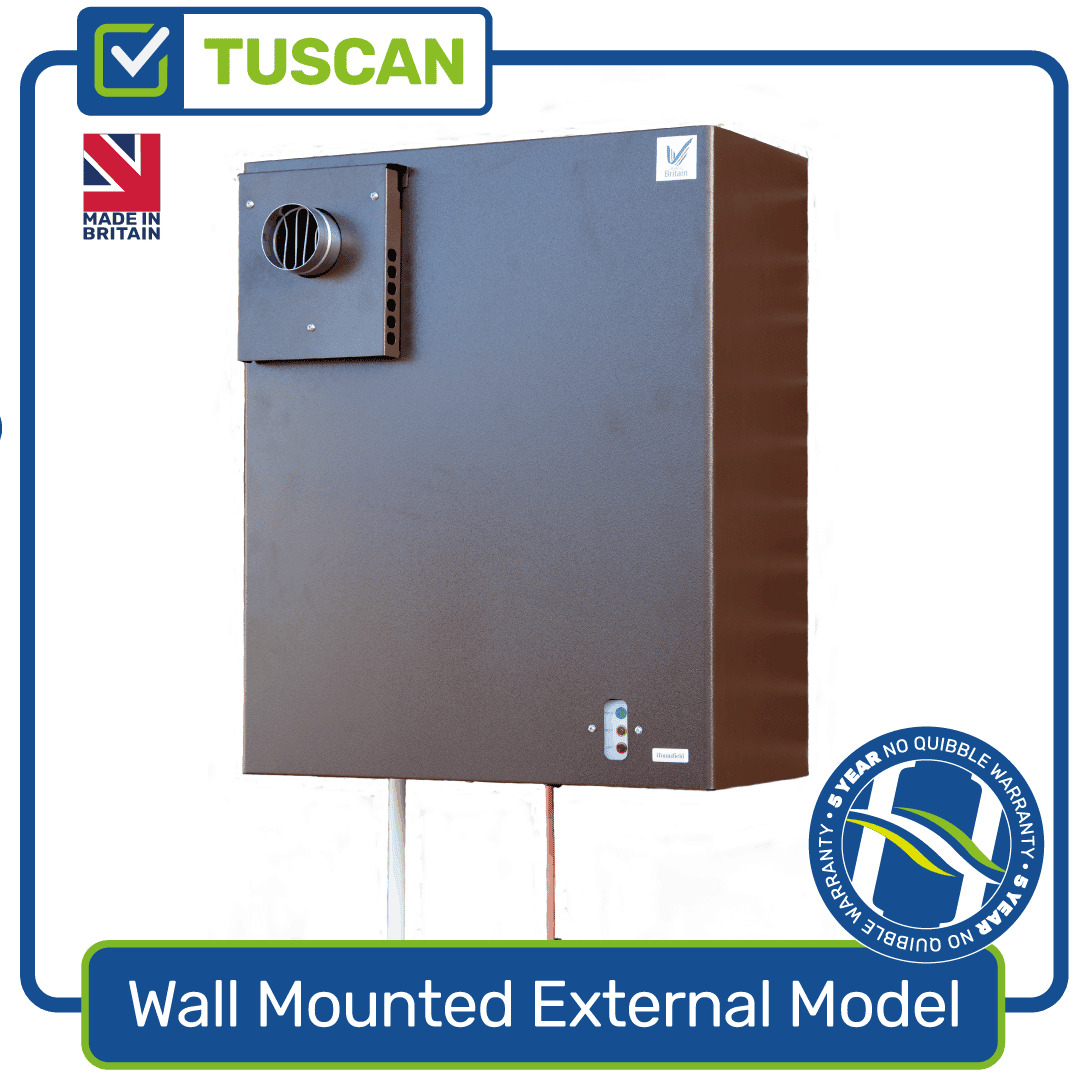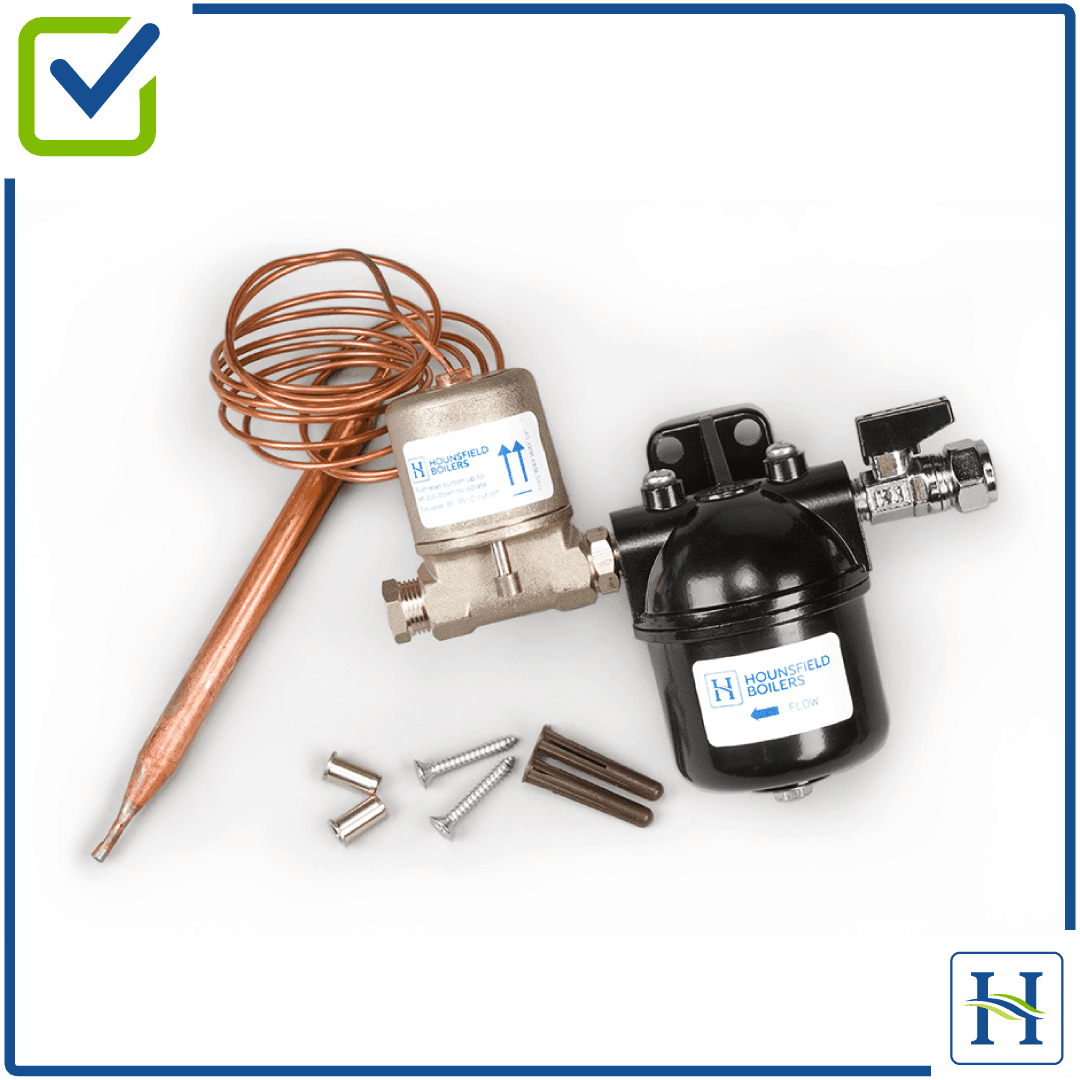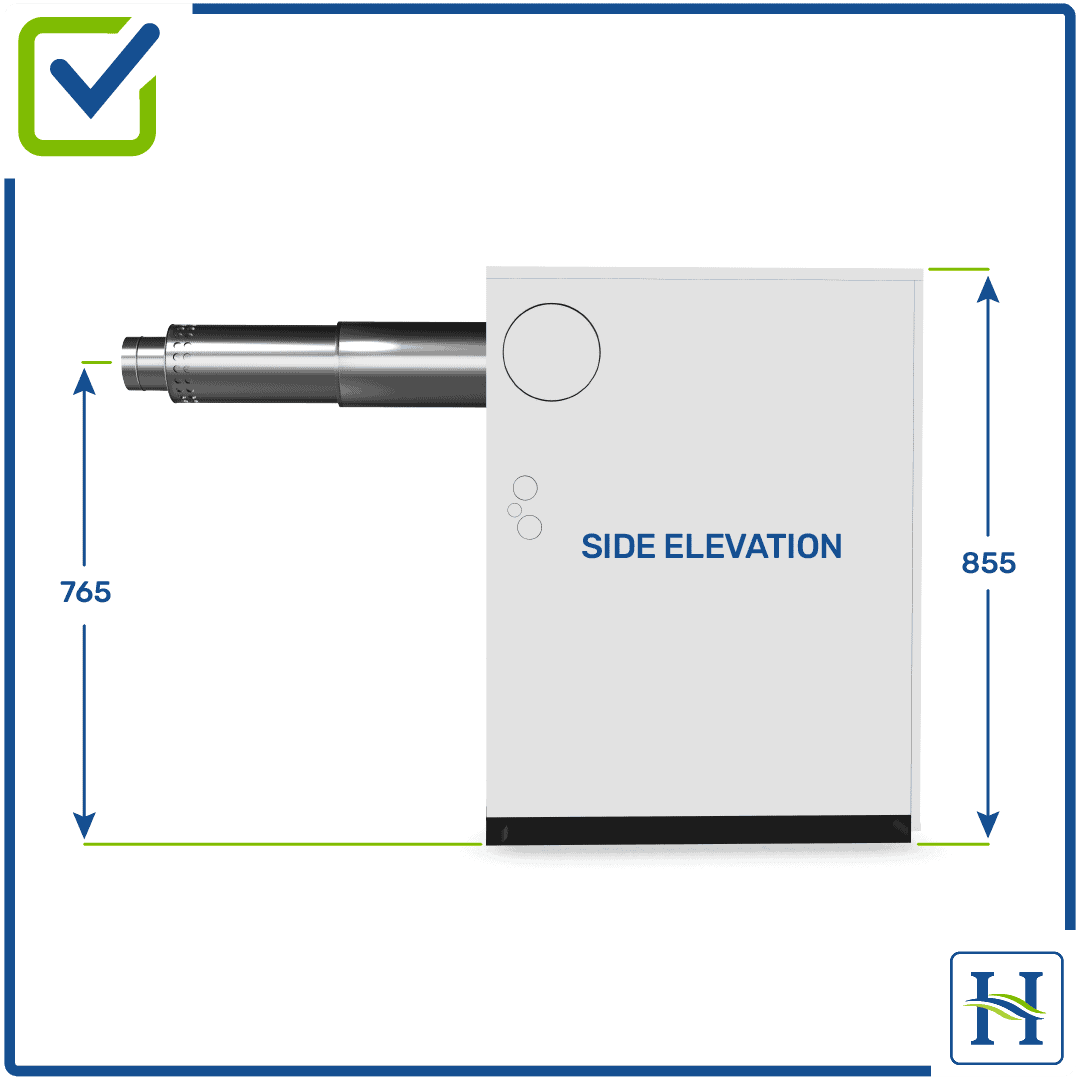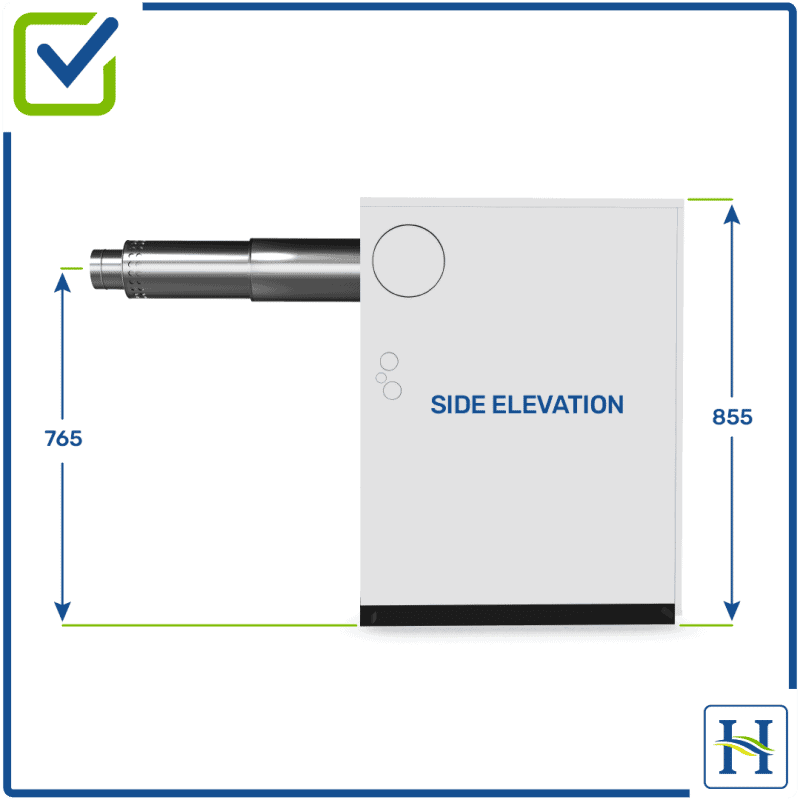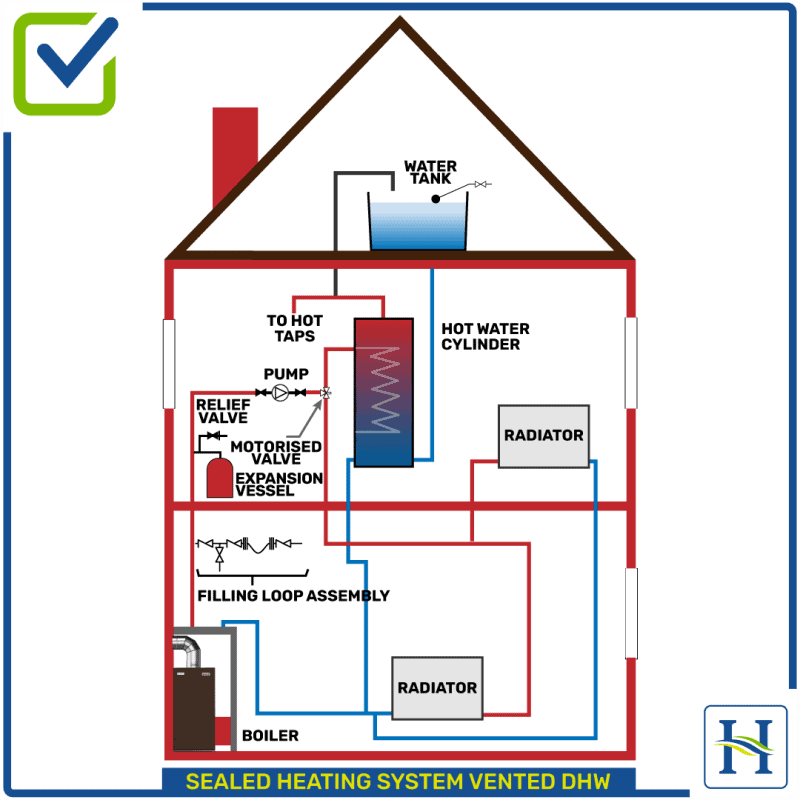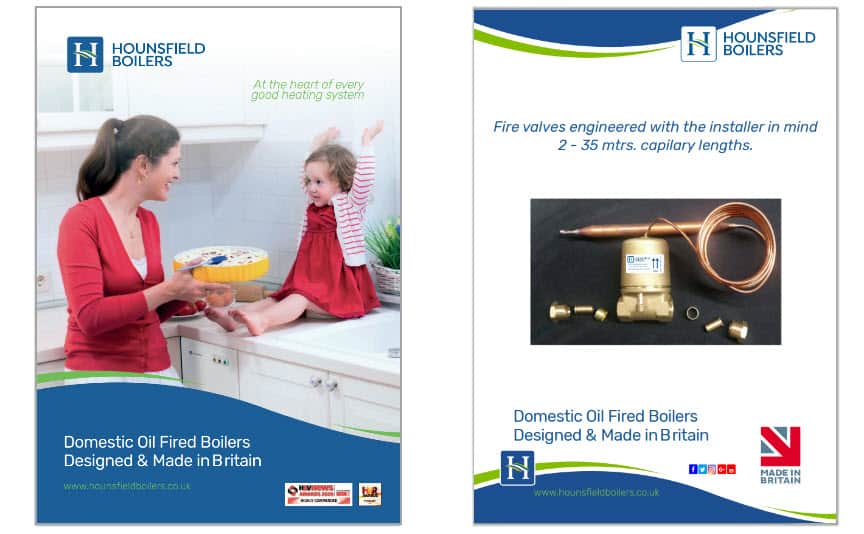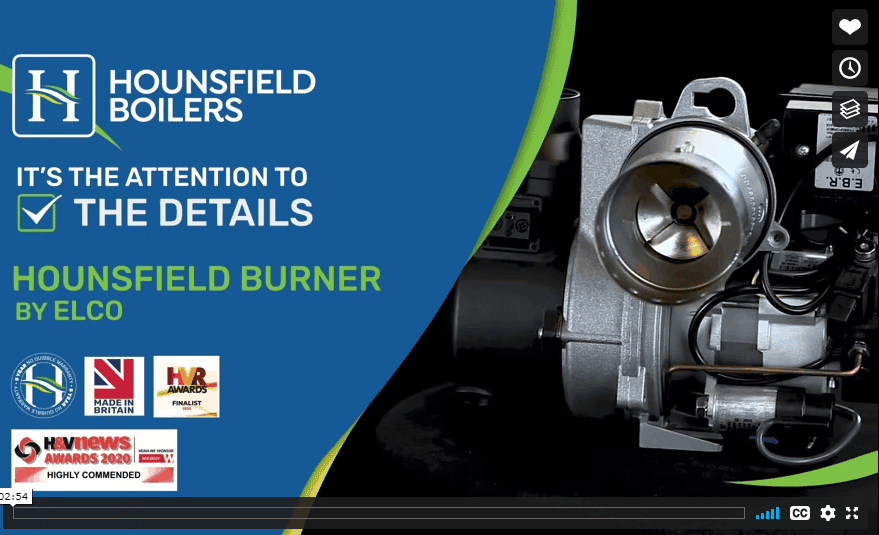Ref ‘Oil Boiler Q&A’ published in Professional Heating & Plumbing Installer
With around 1.5million homes in the UK heated by oil, PHPI spoke with Andrew Hounsfield, Managing Director of Hounsfield Boilers, about the features of the company’s oil boilers and the future for this fuel as the sector seeks to decarbonise heat.
The Tuscan oil boiler from Hounsfield Boilers has a reputation for being compact – how is this achieved?
Essentially by maximising heat exchange surface area. The traditional style of heat exchanger evolved from solid fuel boiler design and has a steel plate in the top with a ceramic pad in the base. In the Hounsfield design all faces of the primary heat exchanger contain water and are heat exchange surface areas, a small door provides access for servicing. So, for example with water in the base of the boiler we’re capturing ‘radiated heat’ directly from the burner flame instead of it being lost to a ceramic insulation pad in the heat exchanger base. Radiated heat is the easiest form of heat to capture in boiler design as opposed to convected heat captured by the baffle system.
The end result is not only a compact boiler, the design also prevents boiler failure as stress fractures are avoided and there are no ‘stagnant’ areas for debris to accumulate.
Are there any other installer-friendly features?
For servicing there are no inaccessible areas when it comes to cleaning the heat exchangers. Plugs and sockets are provided for mains power and the burner, so isolating the mains power fail safe by simply removing a plug and the burner is easily removed for servicing.
Our life-long Teflon cored flexible oil lines are a benchmark to the quality of a Hounsfield Boiler. They eliminate well known hazards associated with the failure of cheaper rubber or thermoplastic hoses used throughout the industry.
We supply an oil filter and fire valve assembly kit with every boiler which includes oil line inserts. It’s these ‘attention to detail’ elements we know our customers appreciate.
You have recently introduced a new burner – what are its benefits?
Changing our burner supply from Bentone was not an easy decision as the BF1 has many good features. However, Elco being part of the Ariston Thermo Group have a large resource for product development and future proofing our product, and I was convinced it was the way to go. Importantly Elco is headed by Guiliano Corticini, formerly with Riello, and has many years’ experience in the design of domestic oil burners and like me, shares a passion for attention to detail.
The new burner has exceeded our already high standard for quality and it is feature packed and future proofed to be able to run on HVO (hydrated vegetable oil) fuel. It has industry standard components, is easy to service, has a patented combustion head delivering outstanding performance, minimising environmental impact, these are just a few of the features.
The burner is fitted to all of Hounsfield’s Tuscan oil-fired boiler range and we’ve produced some short and informative videos on our website to introduce the new burner.
With government keen to reduce carbon emissions and the sector looking to decarbonise heating how might rural properties be heated in the future?
I am very excited about the potential for HVO to be the replacement fuel for traditional kerosene. Comparing emission figures explains why: HVO = 0.036kg CO2e/kWh that’s 91% less than Kerosene and is less than ASHP’s @ 0.09 CO2e/kWh and GSHP’s @ 0.08 CO2e/kWh (when installed in under-floor heating systems), for comparison electricity is 0.233 CO2e/kWh.
HVO ticks all of the right boxes; it’s sustainable, it’s low carbon, affordable and can be used as a drop-in fuel. For many rural homes heat pumps are not practical or affordable so HVO is a clear solution.
As a sector the domestic oil boiler industry isn’t creating enough awareness of HVO. It came onto the market around 15 years ago, and has been available in the UK around three years, it’s used in commercial vehicles on our roads today.
I’ve recently been asking installer customers if they know about HVO, the majority are unaware. I find this shocking, but sadly unsurprising given how little is being done by OFTEC and the government to explore and promote HVO as a drop-in fuel.
Can Hounsfield boilers run on HVO, or would any of the boilers components need altering?
All of Hounsfield boilers are future proofed ready to run on HVO with no changes needed.
Find out more about the Hounsfield Boilers’ range


